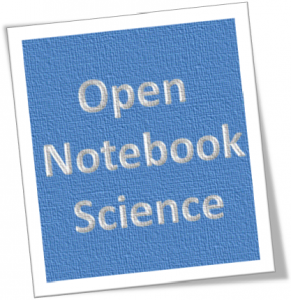Tomorrow is the memorial service for Jean-Claude Bradley. If you are in the area it will be held Saturday June 28 at 6:00 p.m. Boulevard SDA Church, 8441 Roosevelt Blvd, Philadelphia, PA 19115.
If you are in science or librarianship and haven’t heard of him Jean-Claude Bradley was a gifted chemist best know for his commitment to doing Open Notebook Science. Others have written eloquent posts about his skills as a mentor and his devotion to open science.
I first met Jean-Claude in 2011 when I attended the annual Science Online unconference. It was one of the first professional events I attended after leaving industry as a chemist and becoming a chemistry librarian. Although I only met him a few times his courage to take a stand and do what he thought should be done in the face of opposition has inspired me to do the same. Like many who attend Science Online he was a maverick; a rock star of the open science movement, consistently sharing his work and advocating for others to do the same. Chemist might be interested in his open melting point data set in which his team determined melting points for 27,000 substances. Serious scholars may wonder how all this impacted his work as a chemist. According to Google Scholar he has received approximately 1500+ citations, 766 of which occurred from 2009 through the present. At the time of his death his Google Plus page indicated his research interests to be:
Currents projects focus on open collections and open modeling of solubility and melting point data. Applications include drug and reaction discovery, the and the creation of an app to recommend solvents for recrystallization, created in collaboration with Andrew Lang.
While all of these things are great, I will always remember him best for his kindness to others. He was always willing to talk to anyone regardless of how old they were, or their status as a student or professional. His accomplishments as a researcher, open science proponent, easy manner and approachability made him one of the scientists that I admire the most. May we all be more open in memory of Jean-Claude.

